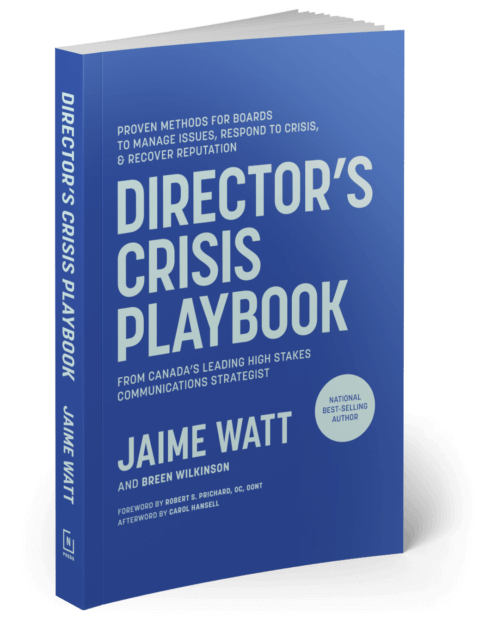Jaime Watt, who has orchestrated communication strategies behind elections across Canada, is writing a three-part series advising each of the main provincial party leaders on their best path to winning a majority government on June 7. This is Part 2.
Heading into her third election as leader, Andrea Horwath can’t seem to catch a break. After winning her party’s leadership in 2009, she led the NDP from the doldrums where it had lived since its crushing defeat in 1995.
Her steady and reasonable management approach, combined with her charisma and down-to-Earth, approachable style can be credited with much of that.
But that hasn’t been enough.
And, now, should she not at least be able to form the opposition, this election will likely be her last.
Politics is rarely fair and, to make matters worse, a series of unfortunate events have befallen the New Democrats. For a while, Horwath looked quite competitive. The Liberals were trailing in the polls and she was one of two fresh faces and arguably the more experienced one.
But Patrick Brown’s downfall has roiled the Ontario political scene. The eventful race to succeed Brown as leader of the PCs managed to capture nearly every inch of column length and minute of TV time.
To add insult to injury, Horwath’s chief of staff was the subject of allegations that he had mishandled sexual-harassment complaints in an unrelated former job. While that has since been cleared up, it created unhelpful upheaval at a time when Horwath was preparing for the election of a lifetime.
In spite of these challenges, she was uniquely positioned to be the people’s champion – the one who was most authentically positioned to fight an out-of-touch Wynne government.
Doug Ford‘s election as PC leader changed all that. Ford connects with much of Horwath’s audience in a way few can claim to do. And the polls have already begun to show the result.
This leaves Horwath little option but to advance a left-leaning approach to populism. The problem is, Premier Kathleen Wynne has been using the power of incumbency to move in on that territory. The premier’s policy announcements have been aimed squarely at winning those voters from the NDP.
Horwath can’t allow herself to be squeezed out of broader debate by the PCs and Liberals. Although positioned at different points on the political spectrum, both share the strategic advantage that comes from such a narrative.
Horwath’s coalition, itself, also presents complications: The New Democrats have always had a hard-to-reconcile coalition of urban intelligentsia, blue-collar sensibility and rural co-operation. It allowed them to win ridings such as Parkdale-High Park, Hamilton Centre and Essex at the same time.
In 2011, Horwath successfully held her own. In the 2014 election, she made gains in Southwestern Ontario but the urban core of her party fell apart: leaving only one seat in each of Toronto and Ottawa.
This time out, the party must focus on protecting its turf in rural and blue-collar Ontario, while increasing its share of seats in downtown cores. Ontarians want to hear common-sense talk from Horwath that speaks to how she will make their lives more affordable.
She has a great opportunity to run a campaign based on who she is and the experiences she has lived. A sandwich generation, career woman from a mid-size market. A single mom.
She is the perfect pitch person for an approach to government that’s not based on ideology or dogma but rather on making people’s everyday lives better.
Horwath’s decision on Monday to hold an announcement of a large policy item – a $1.2-billion public dental plan – to counteract the effects of the government’s throne speech and the PC’s unity rally was an example of how both to keep the focus on themselves and thread the needle of her coalition.
The New Democrats refused to cede the stage, and they were rewarded with considerable media coverage.
The next 80 days will be more of the same. Balancing coalitions while seizing attention. A high-wire act, for sure, but if one leader has demonstrated the ability to do it, it’s Andrea Horwath.
Jaime Watt is the executive chairman of Navigator Ltd. and a Conservative strategist.


